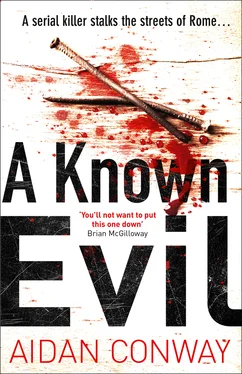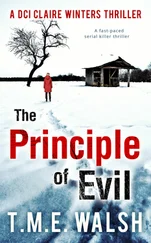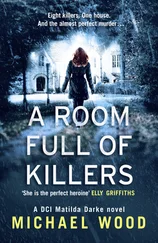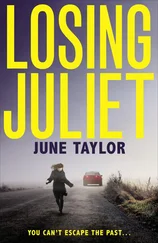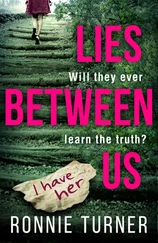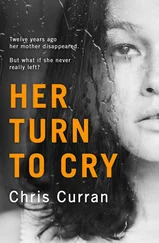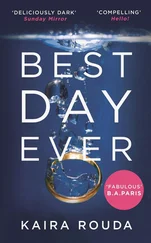“I note,” he said, sounding very much the doctor rather than the policeman, “that you’ve been checking your sent items a lot.”
“I honestly don’t remember,” Spinelli replied.
“On the night before the murder you checked some recent e-mails you sent to Maria. Why would you do that?”
“And why would I do that?” asked Spinelli his tone a blend of puzzlement and returning mild contempt. “I was drunk and emotional. I couldn’t give a damn what I’d written about the night before. I might have been hitting all the wrong keys. There’s any number of explanations.”
“Well,” said Carrara gauging from Spinelli’s reaction that there was no damning sign of guilt, “I don’t know for sure, and we may need a linguistics report on this, but could it be that someone, someone else, really was in your account and was trying to, shall we say, discover your style, see how you write, and then,” he looked up at a frowning Spinelli, “write as if he, or she, were you?”
Rossi, intrigued now, was eager to combine forces.
“Doctor Spinelli, are you sure you came home alone that night?”
“I told you. I was very drunk. I remember next to nothing after 9 or 10 o’clock. I blacked out and woke up with a headache from hell.”
“Do you think anyone could have seen you, as you were coming home or leaving the bar?”
“The barman, maybe. There was a girl, actually; I remember that.”
“And did you drink with anyone? Did anyone buy you drinks?”
“Maybe, yes, usually, but I couldn’t say who. Some people know who I am and we often get talking but, really, it’s all a blur. There was the concert, people coming and going.”
Rossi turned to Carrara.
“Luigi, why don’t you take this man for a quiet drink in his usual bar and see if you can find a witness who saw him leave and with whom. Then get him down to the lab, if that’s all right with you,” he said, turning his attention back to Spinelli who now had his arms crossed tightly across his crumpled, white-shirted chest, “and run a blood test and a urine test.”
“A blood test?” spurted Spinelli.
“For what?” said Carrara.
“Anything,” said Rossi, “but sedatives mainly, fast-acting ones, although I do get the sneaking feeling we could be talking Rohypnol here.”
“The date-rape drug?” said Spinelli, shifting in his chair.
“Got it in one,” said Rossi. “And if it was, we should still be able to pick up any traces. Judging by your symptoms, the blackout, the after-effects, I’d say you got a spiked drink. Maybe someone taking a shot at you, or a poor-taste wind-up. I don’t know. Whether or not they then came back here with you or slipped in while you were distracted is more difficult to prove.”
Rossi turned to Carrara.
“And see what prints you can get off the PC, the door. We can always run them through the databases and see what comes up.”
Spinelli seemed more relaxed; like he’d been through the mill, yes, but to some extent relieved. The look of an innocent man who has found someone to believe him?
“Time to cut down on the sauce, perhaps?” Rossi ventured, more than a little pleased with himself, and then remembering what Spinelli was going through, added, “I’m very sorry about Maria. We’re going to do everything in our power.”
“Thank you, Inspector,” said Spinelli.
As Rossi headed for the door, leaving Spinelli in Carrara’s capable hands, a thought occurred to him. He turned towards the now ex-suspect, as far as he was concerned.
“Do you think there could have been other reasons why they, or whoever it was, wanted to kill Maria? Did she have anything in her possession, did anything go missing that you might be aware of?”
“She had a laptop, of course, disks, memory sticks with a lot of our data on. You know, the court cases, the legal actions against us. The work we were doing on constitutional reform. The prison reform. You didn’t find anything, presumably.”
“Nothing. Her bag was ransacked and subtracted from the scene.”
“Well, our new lawyer is going to have some work to do. But not to worry. Starting from scratch is what we’re good at. Or perhaps I should say climbing the mountain. Yes, mountaineers. That’s what we are. Well-prepared, with clear objectives, and a tough lot.”
Not Kremlin mountaineers, I hope , Rossi thought but decided to save it for himself. You can’t expect everyone to be into Mandelstam, he conceded, but the comparisons being drawn between Stalinist control freakery and the power structures within the movement were maybe not so far off the mark.
“Like Sisyphus?” he said, compromising.
“Maybe,” said Spinelli, “or maybe that’s how you see things, but I like to think we’re actually getting somewhere, Inspector, that it’s not all quite so futile. And I think we’ve got a lot of people in high places more than a little scared. You see, solving Italy’s problems is not difficult, despite what they say. What’s difficult is getting the privileged to give up their cosy little arrangements. They cost us billions, the Church too, with all its privileges. But when the people begin to understand, we’ll put our plan into practice. We’ll remove the Church from every part of civic society. No more secret banking. The Lateran Treaties guaranteeing the cosy coexistence of the Vatican within the Italian state and all their fascist inheritance will be torn up.”
“But the treaties are part of the constitution,” cut in Carrara.
“Exactly,” he said, his eyes burning red now, from grief, anger, and exhaustion, “and when there’s enough support we’ll change the constitution and Italy will be a real Republic. Not this hobbled pseudo-democracy taking orders from the cardinals, multinationals, and old-money fascists. Then we’ll be free. And Maria will be a hero. She won’t have died in vain.”
“Well,” said Rossi, enjoying the speech and the little game that had sprung up between them, “just remember, that when you do get near the top of this mountain you’re climbing it’s merciless, it’s lonely, progress is painfully slow, and you’ll need to carry all your own oxygen.”
“The oxygen of the truth, Inspector, or just the plain old stuff that keeps you breathing?”
“Oh,” said Rossi, “I’d say you’d do well to have them both, and in abundance.”
“I tried not to,” said Bianco to Rossi, who had just slipped back into the office to be greeted by a grim, conspiratorial silence. “He was, shall we say, insistent. Very insistent.”
Maroni had been going berserk. In Rossi’s absence, the whole team had incurred his wrath and, homing in on the weakest link, Maroni had managed to squeeze at least some information out of Bianco.
“He’s got a lot of people on his back,” Rossi countered, having grasped where it was all leading and beginning to soliloquize.
“Oh, and he said he wants to see you ‘physically in person,’” Bianco added, “about Spinelli but before the press conference.”
“And they’ll be pushing for an arrest,” a newly bored Rossi continued, slumping into a vacant chair, “just to keep things quiet and to keep the hacks happy. Give the dogs a bone. Then he’ll go to trial and he’ll probably be convicted, on circumstantial evidence. Then there’ll be an appeal and after about four years they’ll all realize what idiots the judge and, of course, the police had been the first time round and he’ll be out again, and the news, the talk shows, and the afternoon trash TV will be talking of nothing else. Sound familiar?” Bianco just hung his head.
“No? Well, I’ll tell you. It’s called what often passes for Italian justice!”
Читать дальше
